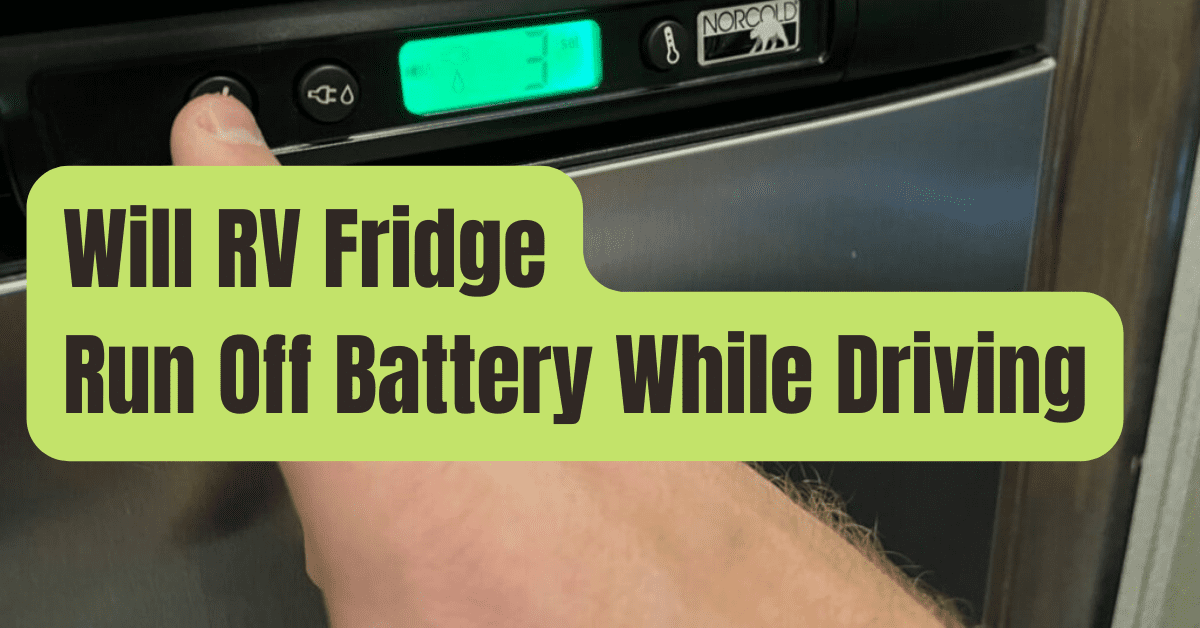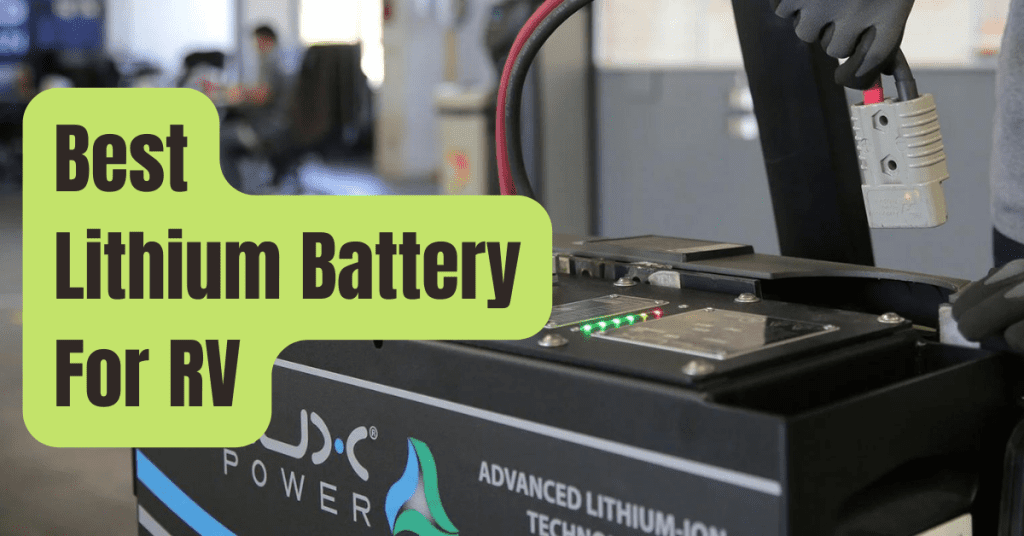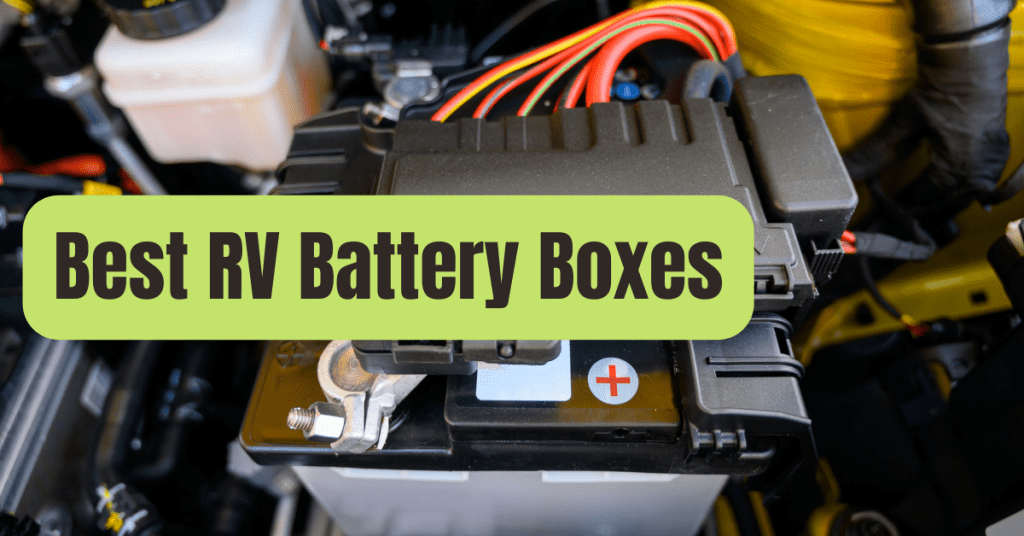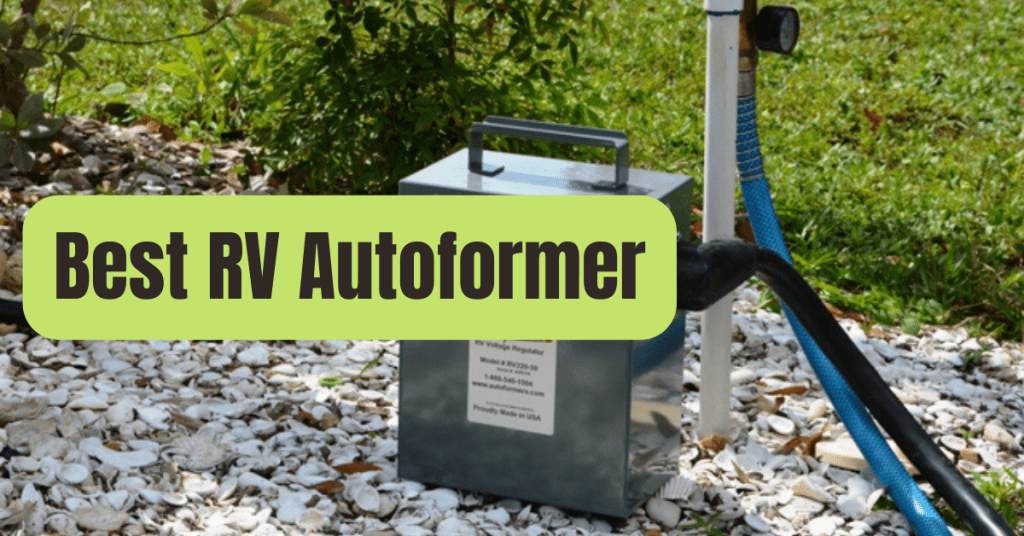Whether you find yourself needing to dry camp with a filled refrigerator, you may have questioned if your RV refrigerator can operate off your batteries.
It varies on your RV model, but how much time you have will depend on a variety of reasons.
RV freezers are not designed to function on batteries alone for extended periods of time.
If your refrigerator model is configured for it or if it also utilizes propane, an RV refrigerator may be powered by a battery.
When employing propane in addition to batteries, an absorption refrigerator may operate for weeks instead of only a few hours on batteries.
A domestic RV refrigerator may operate on batteries for roughly 12 hours.
The last thing you want right now is to lose the food you just placed in your refrigerator because your battery can’t withstand the journey.
Understanding your setup is necessary to determine how long you have to operate your refrigerator.
I’ll assist you in determining how much time you truly have.
How Long Can A Fridge In An RV Run On Batteries?
Unfortunately, there is no definitive response to this issue other than it depends.
Which I get is a really unsatisfactory response.
The life of your refrigerator on batteries is a subject that you’ll want to know the answer to before you resort to dry camping or boondocking since it depends on a number of different factors.
Whether your refrigerator is an absorption fridge or a compression fridge is one thing that will have the most influence.
In contrast to absorption refrigerators, which typically last approximately 3 hours, compression or “residential” refrigerators have a tendency to operate for far longer on batteries – up to 12 hours.
The kind of battery you have is another factor to take into account.
A single 12-volt battery powers some RVs, while four 6-volt batteries power others.
Some batteries may be discharged to only 20% of their capacity and are designed for heavy usage.
You can determine how many hours your refrigerator will operate by knowing the kind of battery in your RV and its battery rating.

Ed Wilcox, a qualified RV technician, leads you through all the processes you need to know to properly maintain your vehicle and repair issues as they arise in the self-guided online course Fix It Yourself.
Consider a 12-volt battery with a 100Ah, or amp-hours, rating.
This indicates that the battery can output 5 amps per hour for 20 hours before it runs out of power altogether.
To determine how many amps are required each hour if you wish to connect a 240 watt inverter to this battery, divide the wattage by the voltage.
240W/12V equals 20A.
The battery will only survive for a fourth as long as usual, or 5 hours, since there will be four times as much demand as there is capacity for.
Realistically, with the above configuration, you would have 2.5 hours to utilize your refrigerator.
You should never drain a battery over 50% if it is not intended for heavy usage.
How long will a refrigerator in an RV operate on batteries? You no longer need to review your high school physics course in order to get the same result since you now know how to compute it once you have all the necessary data.
Knowing a little bit more about how your RV is set up is all that is necessary.

Usage of Batteries and 2-Way RV Fridges
An absorption refrigerator that can be powered by either LP gas or AC electricity is referred to as a “2-way refrigerator.” The only way to operate these freezers on batteries is with an inverter since all batteries produce DC electricity.
Unfortunately, this can rapidly drain your battery power, and some RV designs could even prohibit it.
A 2-way refrigerator requires an inverter to operate.
One fantastic feature of these freezers is that, when powered by LP gas, their battery life lasts for weeks as opposed to just a few hours.
Unfortunately, the answer to the question “will RV fridges function without batteries” is no.
The refrigerator cannot function without the front thermostat and control panel, the front LEDs, and any other extra features, even if they are primarily powered by the battery.
The information available indicates that your battery will last roughly 3 hours given that your 2-way fridge uses an inverter.
However, there are a lot of variables that might influence this, so I’ll teach you how to estimate how long your refrigerator can operate solely on batteries.
You need to know how much electricity your refrigerator consumes, how many batteries you have, how many amp hours each battery is capable of storing, and how efficient your inverter is (if you can’t discover this information, guess 90 percent).
We have two 12-volt deep cycle batteries that have a about 90Ah rating each, and our two-way refrigerator utilizes around 400 watts of AC electricity.
We also need to consider our inverter.
The majority of inverters have an efficiency of approximately 90%.
Therefore, if my refrigerator requires 400 watts, I would multiply 400 by 0.90 to get the entire amount of electricity needed, which is 444 watts.
By dividing the power by the voltage, 444W/12V becomes 37A.
To determine how long the refrigerator will operate, divide the battery’s amp hours by the current: 180Ah/37A = 4.86 hours.
You also don’t want to completely deplete your batteries.
In our situation, we can only operate our refrigerator for roughly 2.5 hours on battery alone since lead acid batteries shouldn’t be discharged more than 50% of their capacity.
This also assumes that we have no other power sources in our RV.
Power Required = Fridge Power x 1/Inverter Efficiency
Power Required / 12V Equals Required Battery Current
Total Battery Amp Hours = Battery Amp Hours x Number of Batteries
Total Battery Amp Hours / Required Battery Current = Total Battery Runtime for Fridge
Useable Battery Run Time = Total Fridge Run Time on Battery / 2.

Use Of 3-Way RV Fridges And Batteries
In that they are absorption refrigerators that can operate on LP gas and AC power, 3-way refrigerators are quite similar to 2-way refrigerators.
However, they also have the additional capability of running on DC electricity directly.
This eliminates the need for a power inverter and improves the refrigerator’s overall efficiency.
These are the most prevalent refrigerator types in contemporary RV models, and they operate virtually precisely the same manner as the 2-way fridges in terms of their power consumption when running on LP gas.
Since you may stop using the inverter and operate only on DC power, this can extend your run time a little.
Some online sites say it can go up to 6 hours, while some claim 8–10 hours.
Let’s nevertheless verify the math.
I discovered a refrigerator that was around 324 watts smaller in power consumption than my present 6 cubic foot 2-way absorption refrigerator.
Since the inverter is not a part of the circuit, our calculation is a little simpler, but the procedure remains the same.
Therefore, if my fridge requires 324 watts of electricity, I divide that amount by the voltage to get 27 amps: 324W/12V.
To determine how long the refrigerator will operate on batteries, proceed by dividing the amp hours of your battery by the current: 180Ah/27A = 6.66 hours.
You shouldn’t completely deplete lead acid batteries, as I just explained, so you can actually run a refrigerator for roughly 3.5 hours on a single charge.
Power Required / 12V Equals Required Battery Current
Total Battery Amp Hours = Battery Amp Hours x Number of Batteries
Total Battery Amp Hours / Required Battery Current = Total Battery Runtime for Fridge
Useable Battery Run Time = Total Fridge Run Time on Battery / 2.

However, smaller, more effective 3-way refrigerators are available.
I did see a Dometic that was a 3-way, 5-cubic-foot model (like a mini-fridge) that only drew 175 W, giving it around 6 hours of usable battery life.
What RV Refrigerator Should You Buy?
You should absolutely choose a 3-way refrigerator over a 2-way if you’re looking for a new RV refrigerator and are concerned about its battery use.
There is a remarkable boost in battery life, and you no longer need to bother about an inverter.
More than anything else, how you camp will determine whether you need an absorption fridge or a compression (residential) fridge.
If you often go boondocking, you may want to think about a compression fridge since absorption refrigerators can’t effectively chill a space if it isn’t perfectly level.
However, since compression fridges are often much bigger, the space you have may or may not be able to handle one.
If you often keep a lot of food, you may want to choose a compression fridge because of the more room they typically provide, as well as the longer battery life (10–12 hours) and more even chilling while you’re on the move.
RV Maintenance Course For Do-It-Yourselfers
The most expensive costs associated with owning an RV are repairs and upkeep.
I advise learning how to maintain and repair your RV on your own for this reason.
The best approach to learn how to do the most frequent repairs and maintenance on your RV is to take the Fix It Yourself RV Maintenance Course.
You may trust that the content in the course was written and narrated by a Certified RV Technician.
Additionally, it may be downloaded so you can access it from any location, even while boondocking in a remote area without connectivity.
Will An RV Refrigerator Function Without A Battery?
You could be considering methods to completely disconnect the refrigerator and let it operate only on LP gas in order to save battery power.
But do RV refrigerators that use propane need batteries? As I have said, they do.
Although the batteries in 2- and 3-way refrigerators may appear little, it is crucial that the thermostat be operating when the rest of the system is turned on in order to control the interior temperature.
It is not a question of whether an RV fridge will function without a battery if you take into account all the components that need battery power, but rather, how long will it run without a battery.
Can An RV Refrigerator Be Used While Moving?
Many people advise against using liquid propane gas for your refrigerator while driving.
However, there is no absolute rule; rather, it depends on your level of comfort.
To put it another way, if you are driving while your refrigerator is on LP, you are operating an open flame.
When driving and operating a refrigerator on LP, you should take the required precautions to turn off the LP before going into a petrol station, boarding a boat, or entering a lengthy tunnel.
Fortunately, depending on your setup and the condition of your refrigerator, you may be able to utilize your batteries to keep it chilled while you’re on the road, saving you from having to fiddle with LP gas while you’re moving.
Because the battery is continually being recharged by the alternator as you drive, this is one of the greatest times to utilize the battery to power your refrigerator.
If you have a motorhome, the engine and battery both have an alternator built in.
However, if you have a pull-behind vehicle, the truck’s battery, which has an alternator, is really what powers the refrigerator.
So, while traveling, can RV refrigerators be powered by batteries? Indeed, they will.
However, you could always run your generator and utilize AC electricity to operate your refrigerator if you’re still seeking for a different solution.
You may be worried about the durability of your generator.
How Long Can You Run an RV Generator? is a comprehensive post I wrote on the subject.
Plus, fuel-saving advice.
Final Thoughts
While it is feasible to operate a refrigerator on battery power, you’ll want to know how long that will last in order to prevent your food from spoiling while you’re camping.
You can determine the precise capacity of your RV battery and calculate your battery life in hours per day regardless of the refrigerator or configuration you have.










